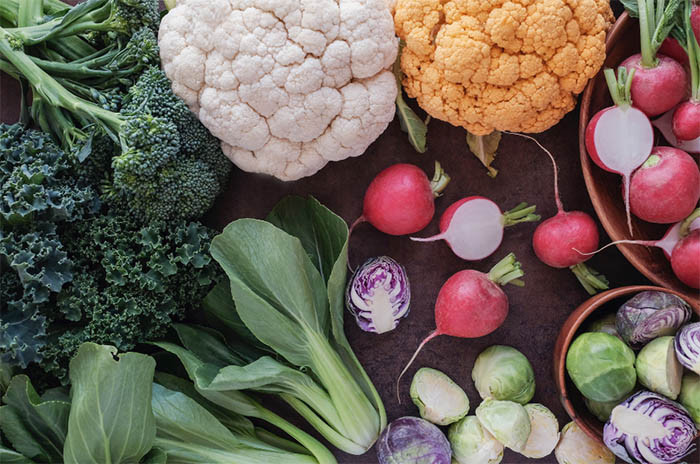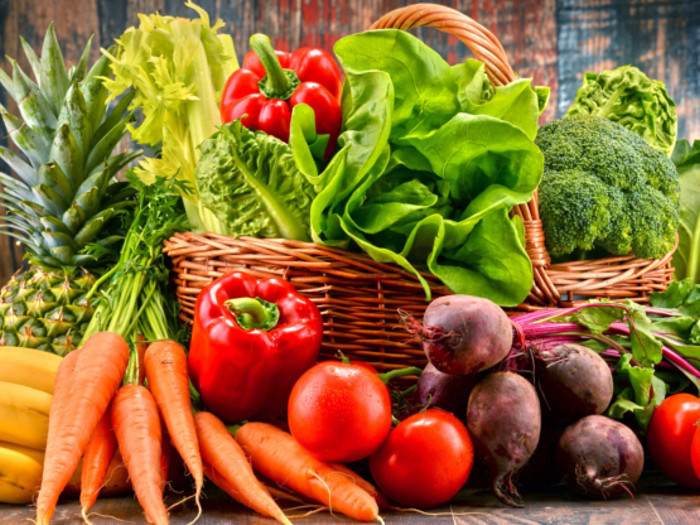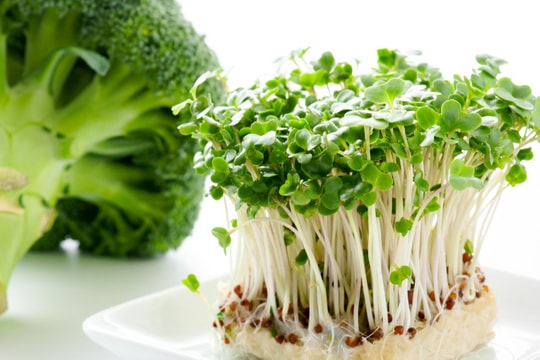The reason why broccoli and cauliflower help stabilize blood sugar is because they should be eaten at the beginning of a meal.
Eating cruciferous vegetables and cauliflower at the beginning of a meal can help control blood sugar levels, which is good for health, especially for type 2 diabetics.
Most vegetables are rich in fiber, which helps prevent sugar spikes. The World Health Organization (WHO) recommends that people eat more than 400g of vegetables a day to improve overall health and reduce the risk of diseases.non-communicable diseases.

Stabilize blood sugar
Doctors and nutritionists often advise people with diabetes to eat more vegetables. They suggest replacing refined carbohydrates in the diet with plant foods.
According toIndian ExpressMany studies have shown that eating vegetables before other dishes can reduce blood sugar levels after meals. Leafy vegetables provide soluble and insoluble fiber, vitamins, and minerals. In addition, they contain many beneficial substances, including plant sterols, flavonoids, and other antioxidants, which have anti-inflammatory properties.
With patientstype 2 diabetesVegetables play an even more important role. The high fiber content of vegetables reduces the risk of blood sugar spikes after meals. Vegetables are more filling despite being lower in calories than grains, and they offer variety and flavor. However, no single vegetable has all the desirable properties, so eating a variety is important.
People with type 2 diabetes should choose cruciferous vegetables, cauliflower... rich in fiber, containing many vitamins, minerals and antioxidants. Some antioxidants that are beneficial for people with diabetes include alpha-lipoic acid (ALA) in kale, spinach; N-acetylcysteine (NAC) in onions, garlic; vitamin C in peppers, strawberries and broccoli. Vegetables containing nitrates, which have the effect of lowering blood pressure, are also a good choice such as beets, lettuce, celery and radishes.

Provides protein, good for the intestines
Sources of plant protein include tofu, green beans and peanuts. Although vegetables are not a good source of protein, some vegetables are richer in protein than others. Watercress, spinach, asparagus, broccoli and cauliflower contain between 2 and 4g per 100g.
The gut microbiome plays an important role in carbohydrate and fat metabolism, which can affect the ability to regulate blood sugar levels. Analyses have shown that people with type 2 diabetes have a less diverse and less balanced gut microbiome than healthy people.
Fiber from leafy greens feeds the bacteria in your gut, helping them thrive. The best vegetables for a healthy gut are spinach, okra, garlic, onions, mushrooms, bok choy, cabbage, and cauliflower.
Aim for half of each meal to be low-carb vegetables like spinach and broccoli. Raw vegetables have more fiber than cooked or processed vegetables.


